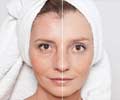Negative feelings like loneliness and unhappiness can trigger premature aging. Building positive feelings (happiness, hope and safety) could be the best anti-aging therapy.
- Loneliness and unhappiness are worse than smoking
- Being lonely, depressed and unhappy can make you age faster
- Feeling hopeless, unhappy, and lonely may increase biological age rapidly
Read More..
Mental Health Linked to Premature Aging
According to the latest article published in Aging-US, any anti-aging therapy needs to focus on one’s mental health as much as on one’s physical health. An international collaboration led by Deep Longevity with US and Chinese scientists have measured the effects of being lonely, having restless sleep, or feeling unhappy on the pace of aging and found it to be significant.The article features a new aging clock trained and verified with blood and biometric data of 11,914 Chinese adults. This is the first aging clock to be trained exclusively on a Chinese cohort of such volume.
Aging acceleration was detected in people with a history of stroke, liver and lung diseases, smokers, and most interestingly, people in a vulnerable mental state. In fact, feeling hopeless, unhappy, and lonely was shown to increase one’s biological age more than smoking. Other factors linked to aging acceleration include being single and living in a rural area (due to the low availability of medical services).
The authors of the article conclude that the psychological aspect of aging should not be neglected either in research or in practical anti-aging applications. According to Manuel Faria from Stanford University: “Mental and psychosocial states are some of the most robust predictors of health outcomes — and quality of life — yet they have largely been omitted from modern healthcare.”
Alex Zhavoronkov, the CEO of Insilico Medicine, points out that the study provides a course of action to ‘slow down or even reverse psychological aging on a national scale.’
Reference:
- Psychological factors substantially contribute to biological aging: evidence from the aging rate in Chinese older adults - (https://doi.org/10.18632/aging.204264)












